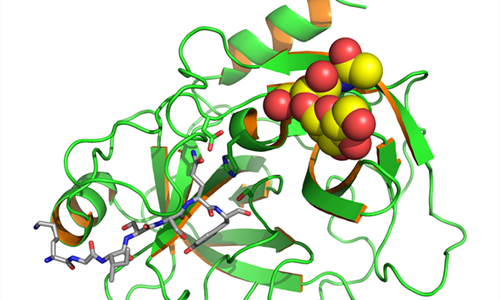When PSA Is 4-10, phi Test Helps With Biopsy Decision
December 1, 2017
Source: medscape
 1,146
1,146

The Prostate Health Index (phi) (Beckman Coulter) significantly changes urologists' opinions about whether men with certain results on prostate-specific antigen (PSA) screening should or should not undergo a prostate biopsy to assess for cancer, according to new observational research.
Use of the test affected the physician's management plan in 73% of the cases in the study, report the authors, led by Jay White, MD, a urologist at Carolina Urology Partners in Huntersville, North Carolina.
The changes included biopsy deferrals when the phi test score was low and biopsy referrals when the score indicated an intermediate or high probability of prostate cancer.
In the study, the most common change in management was to avoid a biopsy.
The study was published online November 20 in Prostate Cancer and Prostatic Diseases.
For their study, Dr White and colleagues compared 506 men who were prospectively enrolled and who received the phi test, and 683 historical control patients, who did not receive the phi test. Notably, the prospectively enrolled participants and the control patients were from the same four large urology groups (in North Carolina, Maryland, Colorado, and Texas) and were managed by the same physicians.
The men who received the phi test underwent significantly fewer biopsy procedures compared to the historical control group (36.4% vs 60.3%, respectively; P < .0001).
"Physicians were less inclined to do a biopsy on patients receiving a low phi score," said Dr White in a press statement.
All of the men in the study were at least 50 years old and had undergone digital rectal examinations, the results of which were not suspicious. The patients' PSA values ranged from 4 to 10 ng/mL.
Other studies have shown that men with PSA values in this range have only about a 30% to 35% chance of being found to have a cancer upon biopsy. This poor diagnostic specificity is one of the leading problems related to PSA testing.
As a result, 65% to 70% of men who undergo PSA testing and whose PSA value is in this range undergo unnecessary biopsies and are exposed to complications, including pain, infection, and costs.
In the new study, in 28.3% of cases, the physician stated that knowing the phi score helped to alleviate patient anxiety.
Test Already Available
The phi test has been available for clinical use for a few years. It was cleared by the US Food and Drug Administration in 2012 to help clinicians distinguish between prostate cancer and other prostatic conditions in men with PSA values in the 4 to 10 ng/mL range. The test combines the results of three immunoassays ― total PSA, free PSA, and p2PSA ― into a single numerical score.
The new study is only the second study in which the clinical utility of the phi test was evaluated in "real world" practice.
In the other study, which was conducted at Johns Hopkins University in Baltimore, Maryland, by academic researchers, the findings were similar (Prostate Cancer Prostatic Dis. 2017;20:228-33).
That study compared a prospective registry of 345 men who received a phi test to a contemporary cohort of 1318 men who did not have the test and who served as control patients. Notably, phi testing reduced the rate of biopsies performed without changing the frequency of higher-grade cancers detected. Overall, 39% of men in their registry underwent a biopsy when the phi test was included in the assessment; this represented a 9% reduction in the rate of prostate biopsies performed compared to the control group (48%; P < .001).
"Both studies show a reduction in rate of biopsy when phi is used," Jeffrey Tosoian, MD, MPH, a resident at the James Buchanan Brady Urological Institute at Johns Hopkins School of Medicine, commented in an email to Medscape Medical News. Dr Tosoian is the lead author of the Johns Hopkins study.
Both studies show a reduction in rate of biopsy when phi is used.Dr Jeffrey Tosoian
He noted that Dr White and colleagues administered a two-part questionnaire to the participating physicians, which made their study "more of a true 'clinical utility' study, where you assess decision making in the absence and presence of the test," he added.
The questionnaire allowed physicians to record their recommendations before and after receiving the phi test result. Through use of this tool, 73% of all patient management plans were changed.
Thus, the study from Dr White and colleagues builds on the earlier study from Johns Hopkins by "showing specifically that the information provided by phi impacted the physician's management plan, providing more direct evidence that phi can aid in the decision-making process," he commented.
Dr Tosoian also said that urologists at Johns Hopkins have begun in the past 1 to 2 years to use the phi test routinely in cases in which the PSA level is 4 to 10 ng/mL. "Personally, I routinely use phi in cases where deciding whether to biopsy is not clear cut," he commented.
By DduRead more on
- Things to Know before Buying Newborn Baby Incubators March 31, 2022
- CRUK researchers develop new early-stage rectal cancer treatment December 12, 2020
- Highly Resistant Food Poisoning Bug Responds to Antibiotics September 6, 2018
- Smartphone Based Diagnosis to Identify Mosquitoes Transmitting Infection September 5, 2018
- 3 Natural Plant Extracts Manufacturers on Drugdu.com September 4, 2018
your submission has already been received.
OK
Subscribe
Please enter a valid Email address!
Submit
The most relevant industry news & insight will be sent to you every two weeks.



